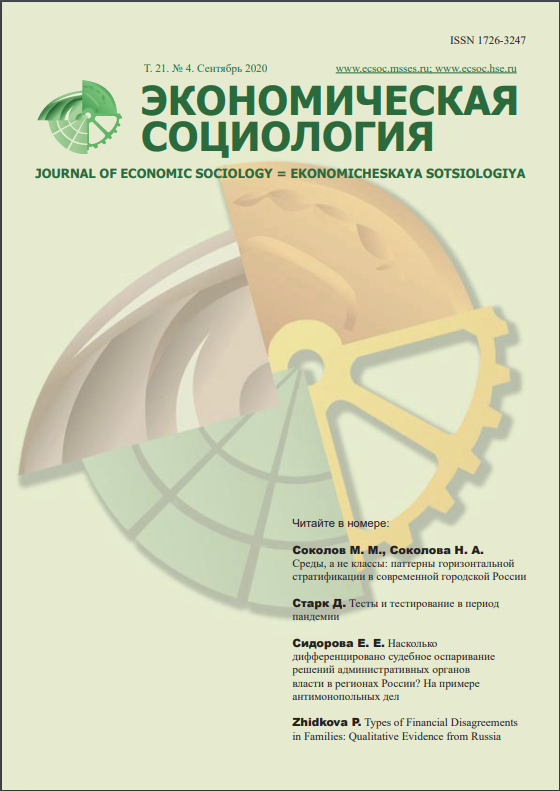Types of Financial Disagreements in Families: Qualitative Evidence from Russia
Abstract
Financial disagreements have been previously identified in the literature as the main predictor of divorce in families as well as the most difficult and prolonged type of disagreement among spouses. However, the topic of financial conflicts between spouses remains undertheorized and has been insufficiently studied empirically in Russia. This study attempts to fill this gap in answering the question of how financial disagreements in families can be classified. To resolve this research problem, 35 Russian married or cohabiting couples were interviewed. In-depth interviews were conducted with each of the partners separately to determine their positions and compare their views within the couple. The results show that financial disagreements are normalized phenomena in the life course of Russian couples. However, the issue seems to be very sensitive, and the qualitative methodology allowed for the detection that partners may feel embarrassed and stressed while discussing the reasons for financial conflicts. Nevertheless, five types of financial disagreements were identified based on their underlying reasons: price conflicts, conflicts about necessity, conflicts of goals, conflicts due to a lack of planning, and conflicts of values. The last type seems to be one of the most difficult and unpleasant types of family conflicts, as it shows that partners hold different and often incompatible positions regarding the family’s finances. This result highlights the importance of using a relational sociology approach while studying marital financial disagreements. Also, the identified typology can serve as a guide for studying financial conflicts in families more deeply and for family therapy and divorce prevention.













